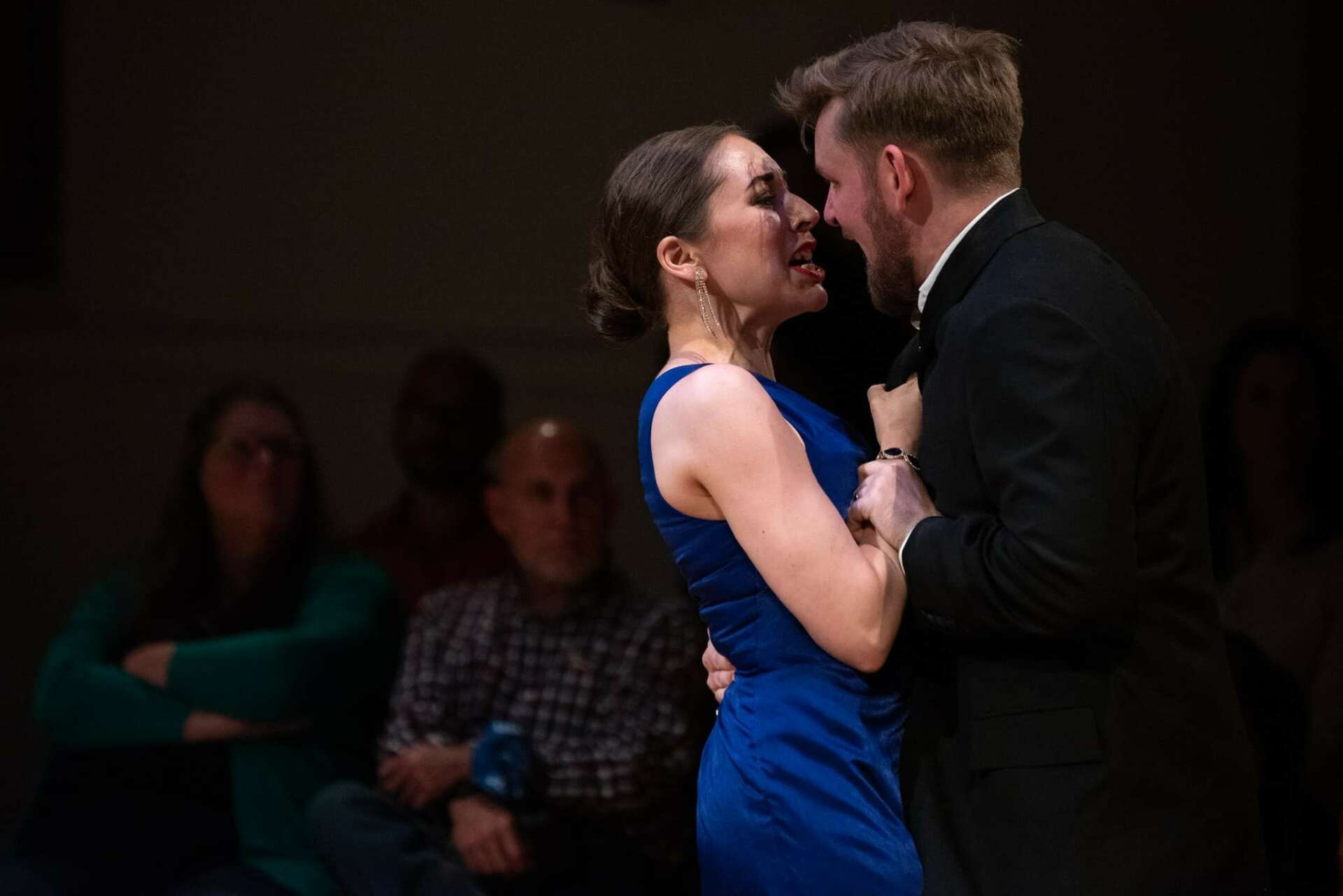We’re excited to introduce you to the always interesting and insightful Emily Ernst. We hope you’ll enjoy our conversation with Emily below.
Emily, thanks for taking the time to share your stories with us today Have you been able to earn a full-time living from your creative work? If so, can you walk us through your journey and how you made it happen? Was it like that from day one? If not, what were some of the major steps and milestones and do you think you could have sped up the process somehow knowing what you know now?
I’m so glad you’re asking this question, which can be rather taboo.
Yes, and no; for about five years now I’ve only worked in theatre only, but my work is about 50% creative and 40% arts admin and 10% teaching. I’m freelance now. It took a lot of work, but I love making my own schedule and doing something different every day. And no, it was not like this even remotely for the first decade out of school.
I graduated from SMU with $600 a month in student loan debt–and mostly private loans, in 2008. Back then, it was basically a rent payment. It was, frankly, nightmarish, and very hard to make ends meet. I probably should have moved back in with my parents or a relative, but they lived in Nebraska and I knew I needed to learn a large market. I moved to New York at 22 with $700 in my pocket; a move that wasn’t as stupid as it sounds because I had a job lined up as a freelance proofreader at a publishing company.
Eventually, my insurance ran out and I needed a job with benefits. I found nonprofit theatre and began learning about arts administration and how to be a professional person in the world. I really enjoyed it, but I felt like an outsider, wondering how I could ever balance a full-time job and pursue what I wanted to do artistically. I wondered if my future was in arts admin, which I enjoyed, but didn’t want to do that (or any one thing, really) full-time. This is the period that taught me how to interview, and about social media marketing, fundraising, grant writing, and arts management, which is what I do now for several companies. And I perform and direct several times a year.
For the first ten years, I sought out work with people I really, really admired, and I found joy in a lot of situations that weren’t what I ultimately wanted to do (but that were more valuable than I knew at the time). I’ll quote Maya Angelou here: “All knowledge is spendable currency, depending on the market.”
I moved back to Dallas from New York in late 2013, and expected to dive into theatre. I found it impossible to hold down a full time job and do theatre at night and be a healthy person. I found a job in fundraising. I loved it, but I still missed theatre terribly. It was truly a moment where I thought it just wasn’t possible and I was too old to start something new (haha!). I left the nonprofit world for a corporate job wanting to find more financial freedom.
I felt like I was pretending to be someone else. There was this year where I commuted almost an hour to a job that used none of my skills except maybe customer service and my ability to type quickly. I watched several hours of numbing television a night, and lived for the weekend. I was 30 and totally lost. Eventually, I sold everything and moved to Paris for a year to attend an international theatre program that specialized in movement. I’ve never been more broke in my life, or more fulfilled. I’m not trying to romanticize the starving artist thing; I just know that I could manage it for a while when I was learning so much, and that the sacrifice was worth it. We performed barefoot, mostly, with no lighting and only the most basic scenery. Classes were only in french, and coming from a heavily text-based background, I learned how silly it is to distinguish theatre from “physical theatre”. If it isn’t physical, what the hell is it?
I felt like I’d seen what could be done with so little and was ready to try that in the US where sometimes we do so little with so much.
To answer the last question there: I don’t think I could have learned this any faster. Every wrong turn was still movement forward, and taught me humility, patience, and to trust my intuition.
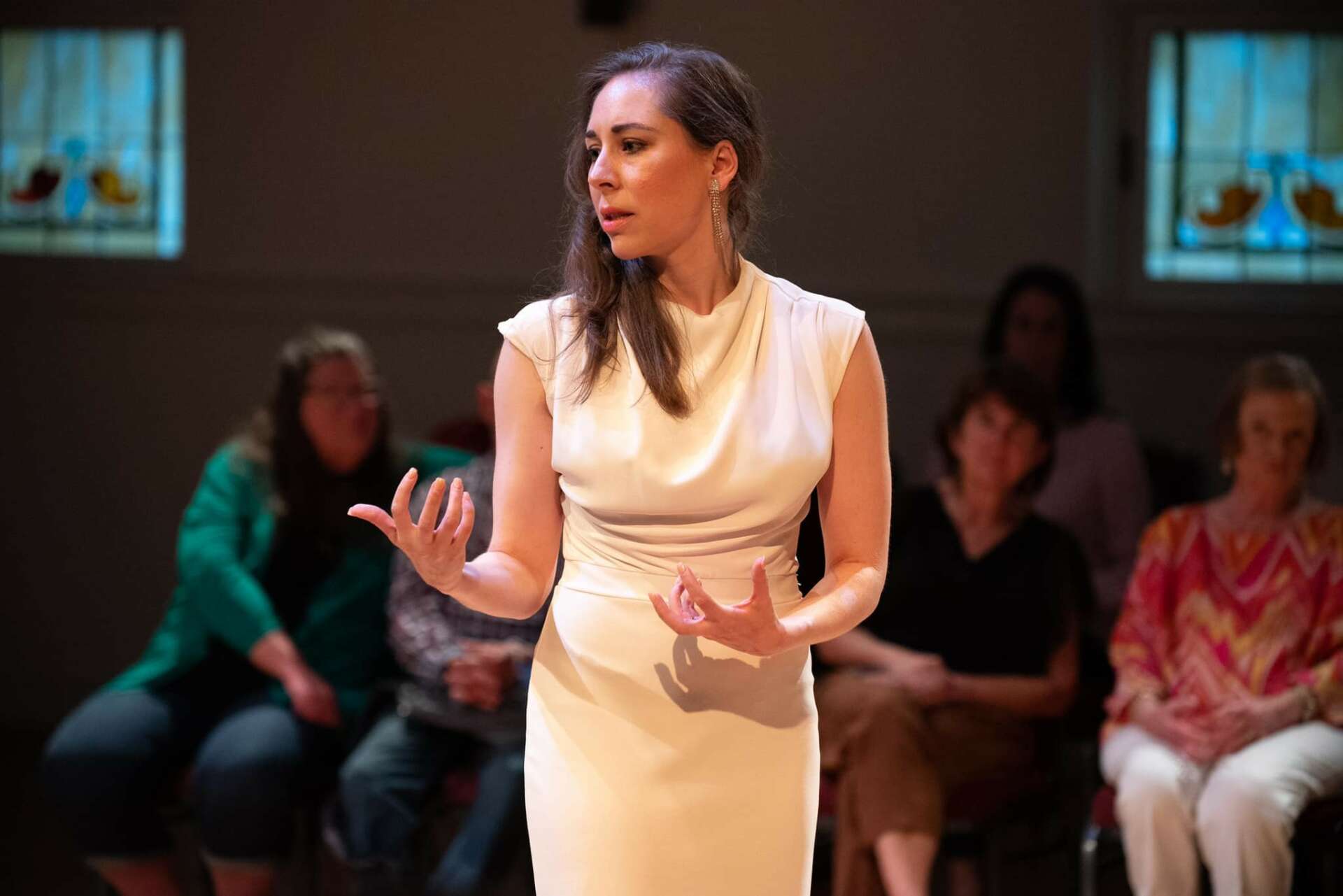
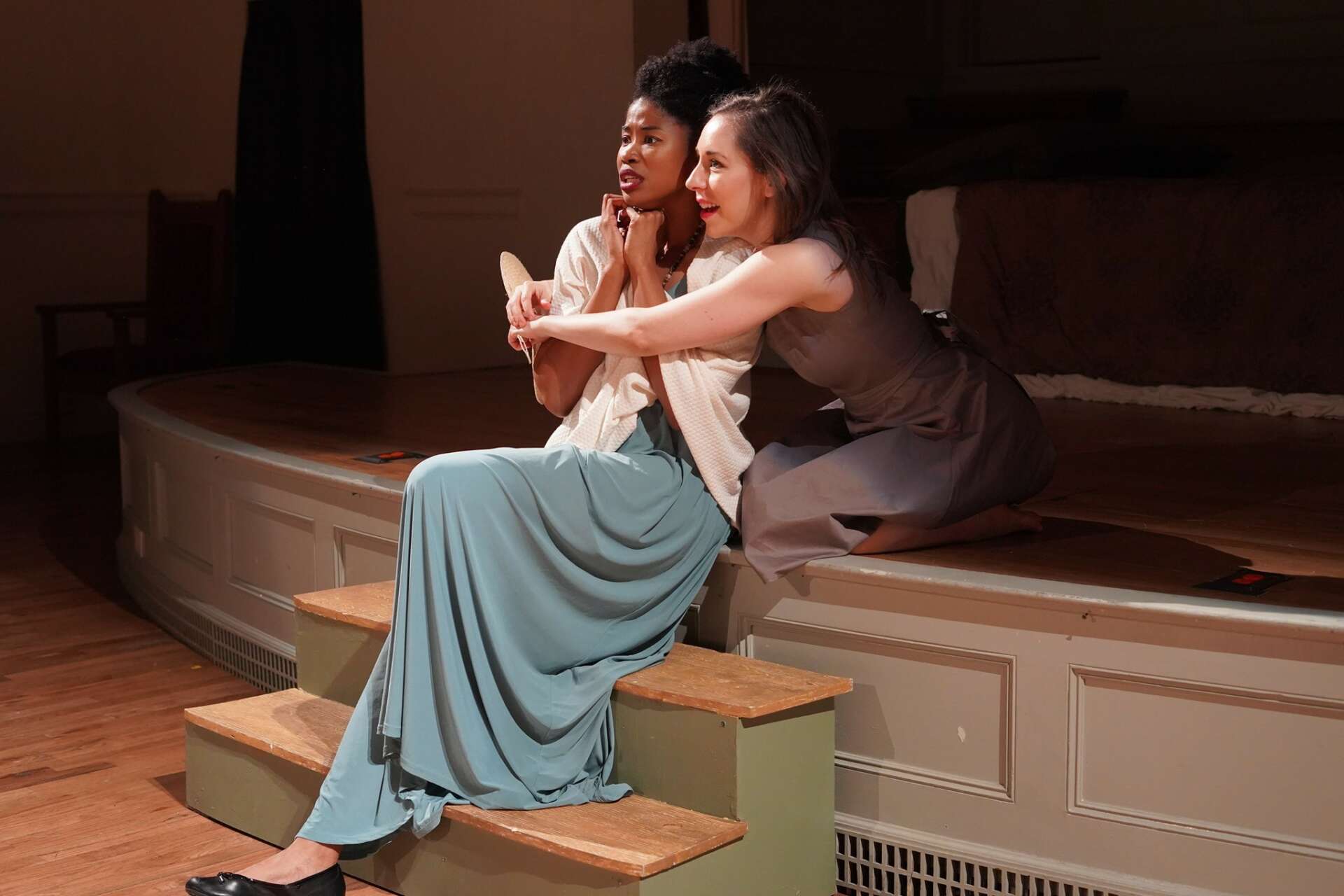
Emily, before we move on to more of these sorts of questions, can you take some time to bring our readers up to speed on you and what you do?
Sure! I co-founded Fair Assembly in 2020 with Chris Rutherford and Joshua Peugh. It’s an ensemble theatre company dedicated to nurturing the creative power of the performer. Most of our training and inspiration shares one common thread: finding new approaches collaboration. Most people who direct for us (whether individually or on a team) are also performers. Sometimes they’re also in the show, but not always. We really try not to be dogmatic about the way we work or assume we’ve cracked any code, and tailor each project to the needs and skills of the people involved.
There is a really wonderful book that is difficult to find called, ” Shakespeare’s Clown: Actor and text in the Elizabethan Playhouse” by David Wiles. There is a passage that I find so inspiring: “In the contemporary theatre, the dominant figure is of course the director. Before the twentieth century, artistic decision-making lay in other hands. What sort of play should be staged? How should it be staged? These were not decisions for a ‘Director’ but (chiefly) for the actor and for the writer. The writer’s work survives, the actor’s work can only be inferred. It is all too easy to assume that the actor was the servant or interpreter of the writer: to forget the writer was, in no less a real sense, the servant or interpreter of the actor.”
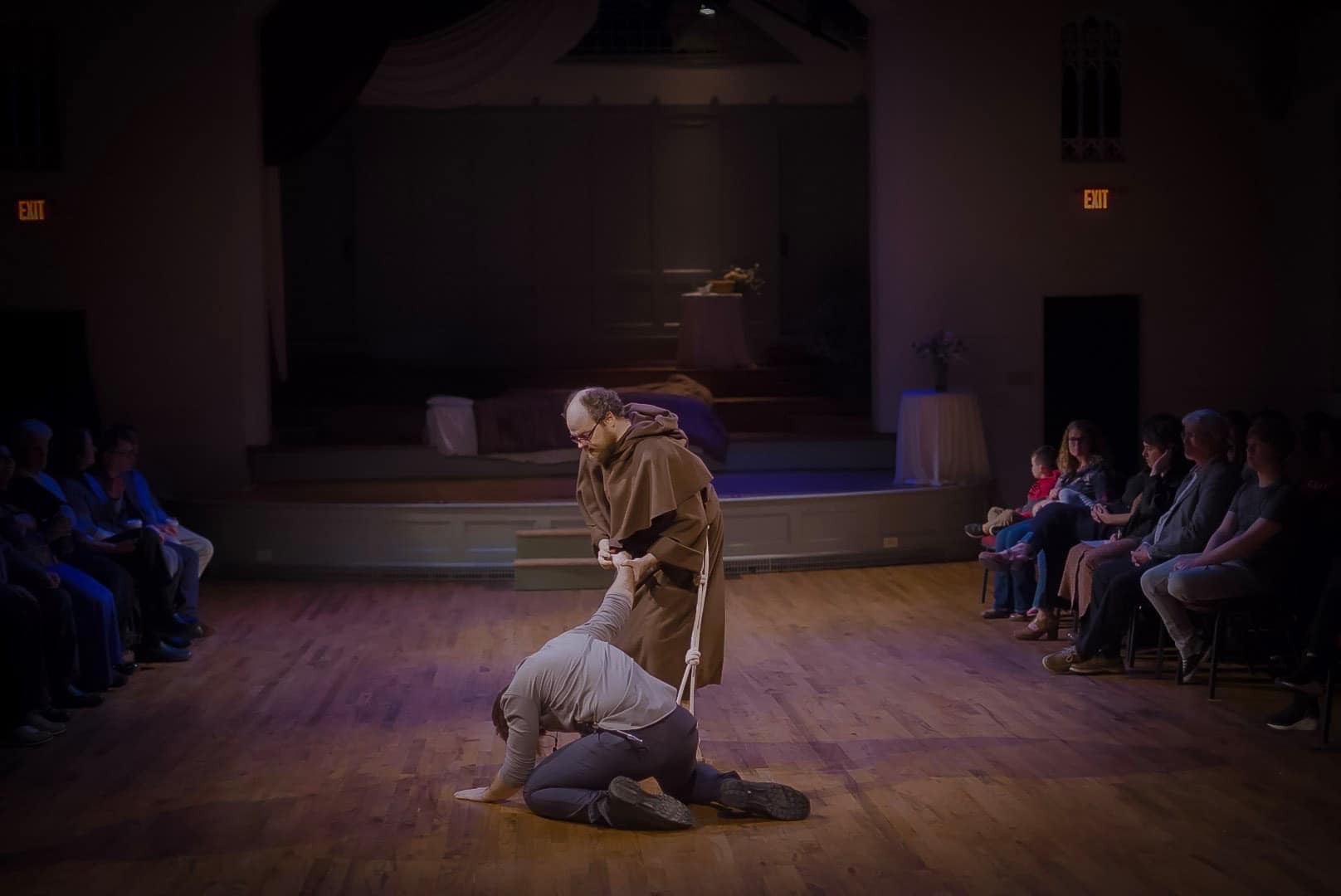
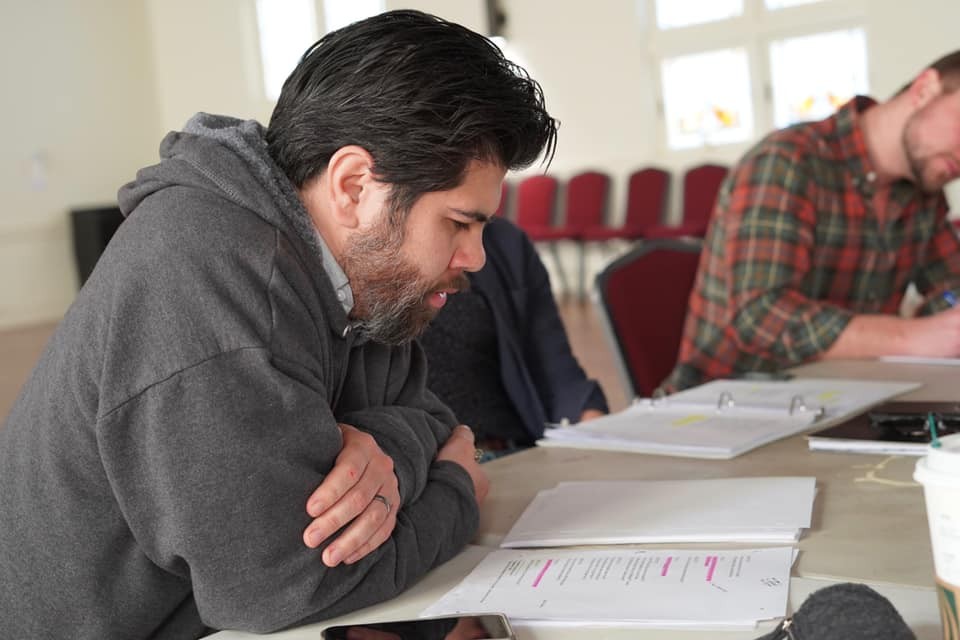
We often hear about learning lessons – but just as important is unlearning lessons. Have you ever had to unlearn a lesson?
Three things come to mind.
The first is that “concept” in Shakespeare repels, I think, where it hopes to entice. It can be fun at first, but it’s like a piece of cake. It doesn’t really fill you up. And it signals to me that we don’t trust audiences, and ultimately, ourselves, to be interesting enough to tell these stories as actors. The work should hold up without special effects.
Thing number 2: that what you feel as an actor matters. Just like heavy concept, it’s a total panic move to be taken by the passion and do a lot of crying. I’ve done it; we’re all guilty. That’s another thing you un-learn as a young and inexperienced actor; if you are sobbing through a speech, you actually move the audience less.
The third thing to unlearn, as a company who often does Shakespeare, is the myth of Shakespeare as a lone genius. He wrote for a specific group of people he knew well, and played to their strengths. He was an actor himself! And in a world where the director didn’t exist, it’s hard to conceive of an environment that wasn’t extremely collaborative. I see a maturity in artists who tolerate discomfort in service of the best idea, no matter where it comes from. Shakespeare’s genius, I think, was in the way he collaborated. Most of his plots are not original–we know the source material! He made subtle changes that were often seismic. If you don’t know about his company, and his process, of course it’s easy to fall for the Oxfordian conspiracy theory, even after it’s been famously debunked by Jim Shapiro.
How did you build your audience on social media?
Yes! We don’t have an enormous social media presence, but I’ve noticed an annoying trend, nationally, to want to share about yourself, and not the work you are doing. I know we live in an individualistic country where we feel the need to sell ourselves, but when “look at me” is the aim, my eyes glaze over. Speaking as a frequent audience member, I want to take apart the clock and look inside. I want to know what’s challenging, and what you’re learning about this craft that you’ve spent your life developing, and what you’re experimenting with. I think it’s hard to go wrong when you’re honest about all that. When we see social media that focuses on individuals, we sense the project lacks depth.
Contact Info:
- Website: www.fairassembly.com
- Instagram: instagram.com/fairassembly
- Facebook: facebook.com/fairassembly
- Other: vimeo: https://vimeo.com/user108925009
Image Credits
Photos by Ben Torres and Joshua Peugh


